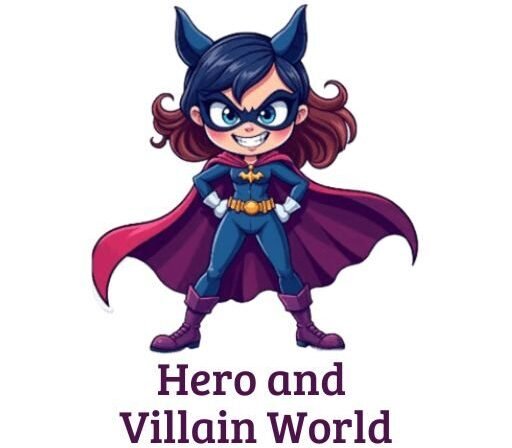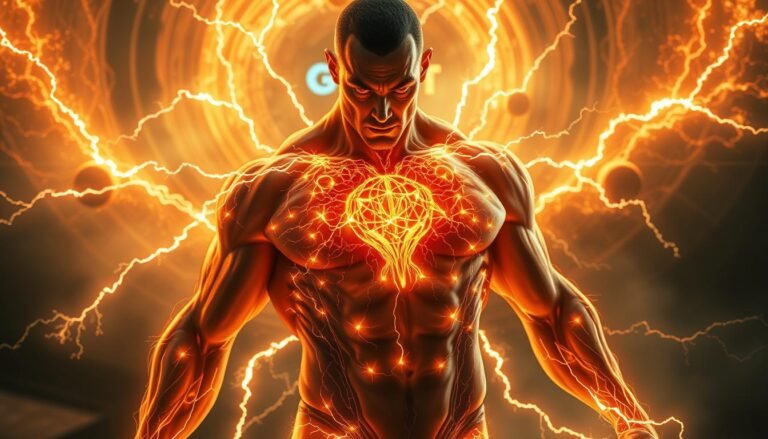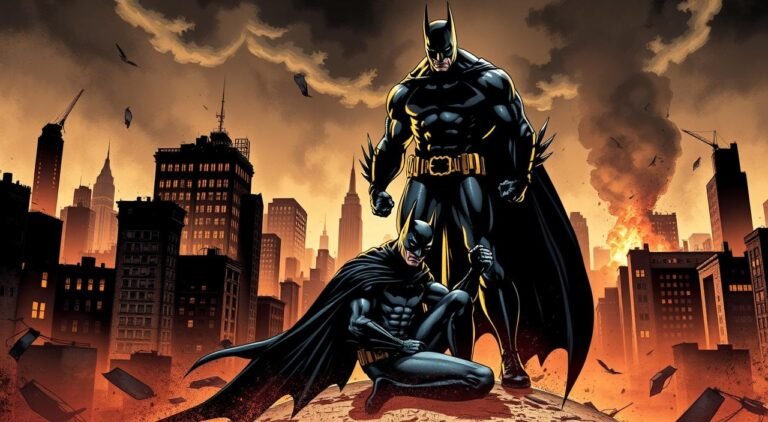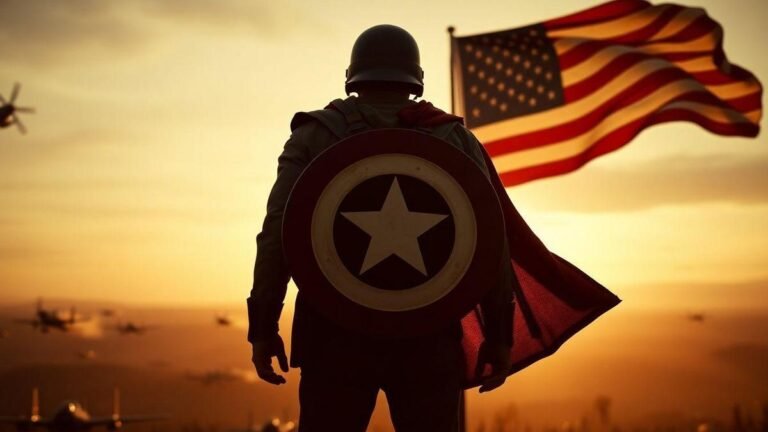The Origin of Antiheroes
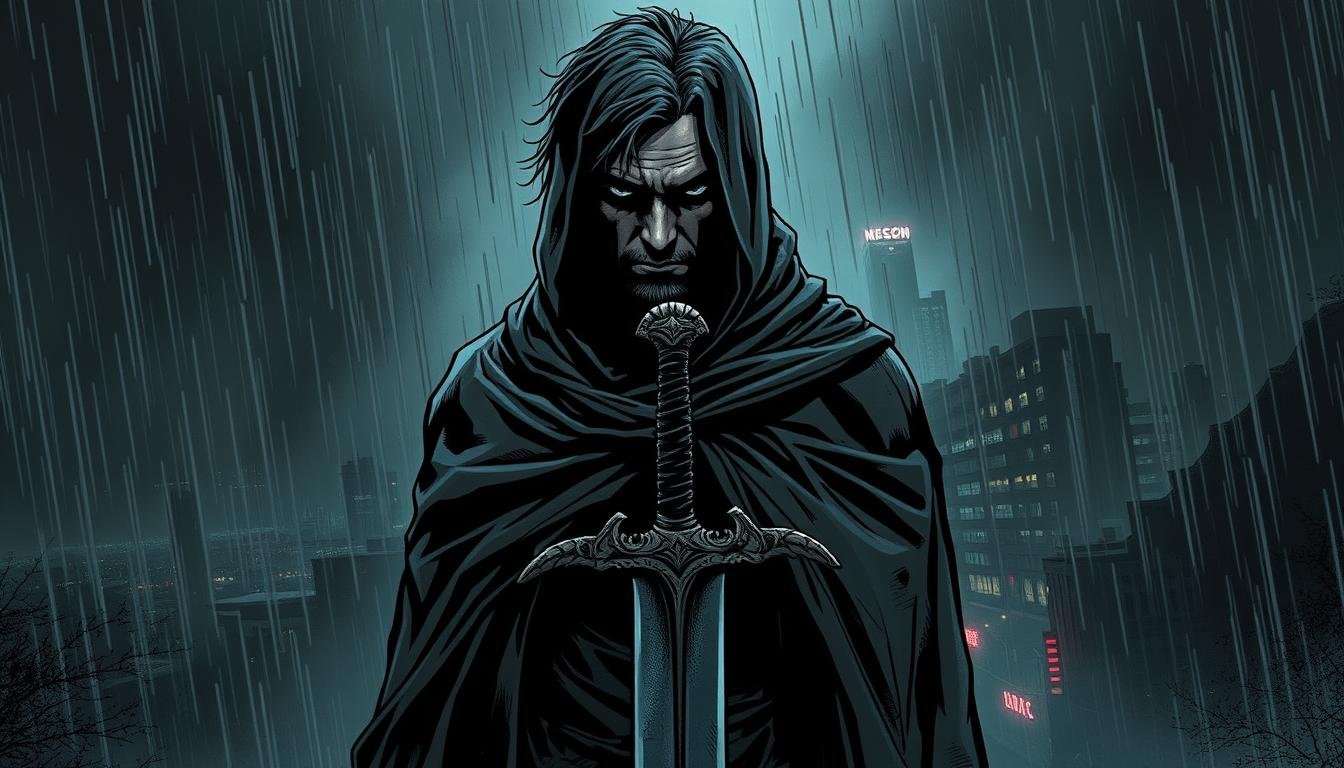
The Origin of Antiheroes: Growing up, I was always drawn to characters who didn’t fit the mold of a traditional hero. They were flawed, complex, and often made questionable choices. These antiheroes felt more real to me, mirroring the struggles we all face in life.
From ancient myths like Achilles to modern protagonists in comics, the antihero has evolved dramatically.
Early examples challenged the idea of a perfect hero, paving the way for characters like those in Kingdom Come. This graphic novel redefined the trope, blending moral ambiguity with redemption.
What fascinates me most is how these antiheroes reflect societal changes. They’re not just characters in a story; they’re mirrors of our own struggles and doubts. In this article, we’ll explore their origin, creators, and lasting impact on storytelling.
The Origin of Antiheroes: An Introduction to Kingdom Come
Kingdom Come stands as a groundbreaking graphic novel in the world of comics. Released in the mid-90s, it reshaped traditional hero narratives by focusing on flawed, morally ambiguous characters.
This story challenged the idea of a perfect protagonist, offering a fresh perspective on heroism.
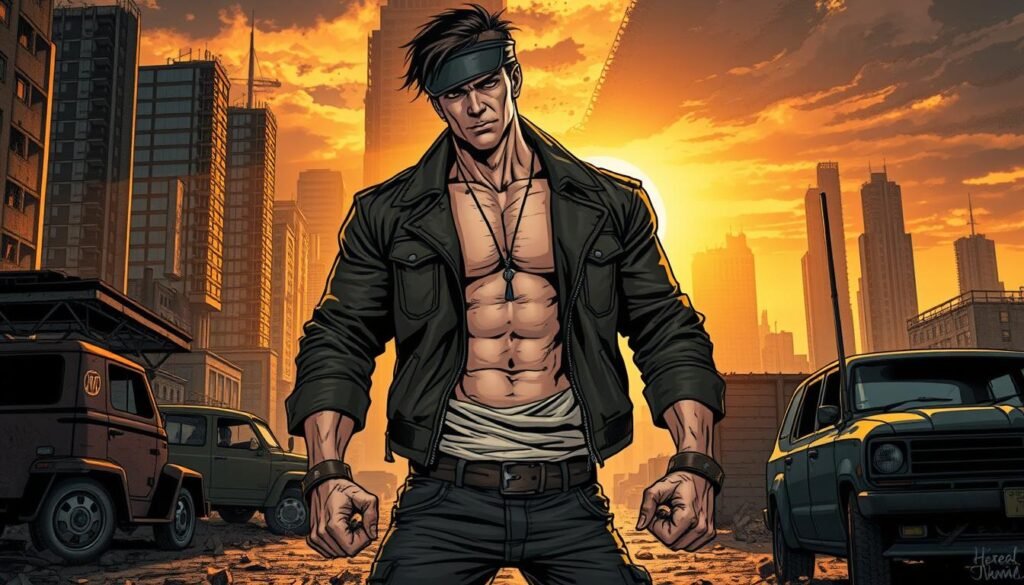
One of the most compelling aspects of Kingdom Come is its critique of reckless heroism. Characters like Magog embody the anti anti-hero trope, blurring the lines between right and wrong.
His actions, such as the public execution of the Joker, sparked debates about justice and morality.
The narrative also reflects societal changes. The Midwest incident, which devastated the American Heartland, serves as a metaphor for the consequences of unchecked power. This event disrupted food production and led to millions of deaths, highlighting the dangers of flawed leadership.
Kingdom Come’s impact on comic book culture is undeniable. It pushed back against the gritty trends of the 1990s, reminding readers of the value of classic heroism. The series introduced a new way to view heroism, blending moral complexity with redemption.
| Key Themes | Impact |
|---|---|
| Moral Ambiguity | Redefined heroism in modern storytelling |
| Societal Reflection | Mirrored real-world struggles and doubts |
| Cultural Critique | Challenged the rise of edgy antiheroes |
In my view, Kingdom Come remains a pivotal work in comic history. It not only subverts the classic hero trope but also invites readers to question their own ideals. By exploring the anti-heroe concept, it offers a deeper understanding of human complexity.
The world needed heroes…It got them instead.
A swordsman past his prime who has vowed to never wield a blade again.
A mage who’d rather throw fists than fireballs and thinks magic is for sissies.
An assassin who grows sick at the sight of blood.
And a man with a pet squirrel he believes to be an ancient god from long ago.
The Origin of Antiheroes: Creator, Origin, and First Appearance
Kingdom Come’s creator, Mark Waid, redefined storytelling in comics. His vision blended traditional hero qualities with modern flaws, creating a character type that felt deeply human.
Waid’s background in comic writing gave him the tools to craft a story that resonated with readers on a personal level.
Meet the Creator Behind Kingdom Come
Mark Waid’s journey into comics began with a passion for heroes. He admired their strengths but wanted to explore their weaknesses.
This led him to create Kingdom Come, a work that challenged the idea of a perfect protagonist. Waid’s inspiration came from real-world struggles, making his characters relatable and compelling.
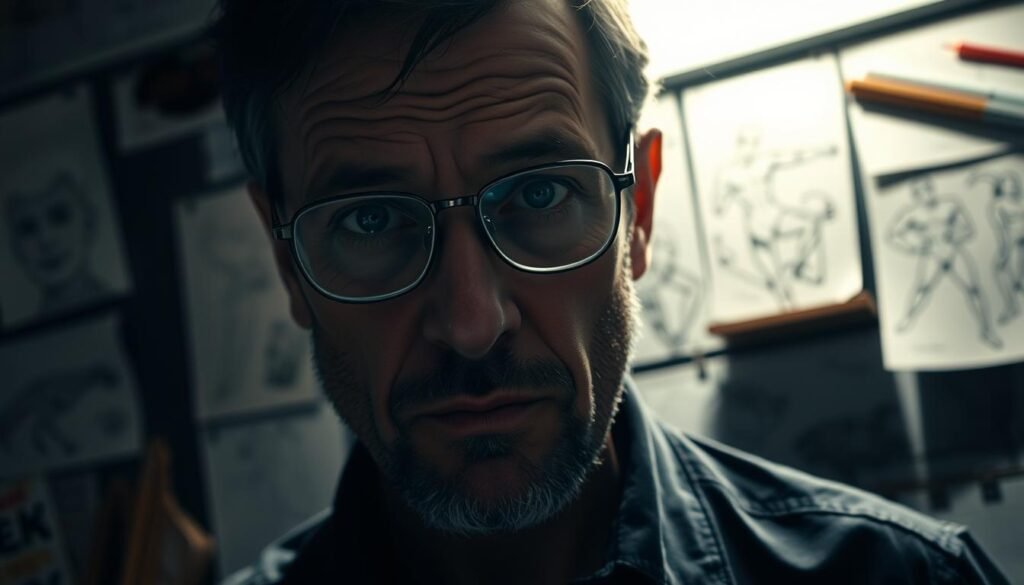
The Birth of a Controversial Tale
Kingdom Come’s debut shocked and intrigued readers. Its anti anti-hero characters, like Magog, blurred the lines between right and wrong. Waid’s writing technique blended classic heroism with moral ambiguity, creating a story that felt fresh and thought-provoking.
Key moments from the debut included the public execution of the Joker and the Midwest incident. These events highlighted the dangers of unchecked power and flawed leadership.
Waid’s ability to weave societal critique into his work made Kingdom Come a standout in comic history.
| Key Elements | Impact |
|---|---|
| Flawed Characters | Redefined heroism in modern storytelling |
| Moral Ambiguity | Challenged traditional hero tropes |
| Societal Critique | Mirrored real-world struggles |
Kingdom Come’s success paved the way for future film and writing styles. Its influence can be seen in works that explore the complexity of human nature. Waid’s anti-heroe concept remains a powerful example of how flawed characters can inspire and challenge us.
Kingdom Come in Comic Book Publications
Comic book fans witnessed a turning point with Kingdom Come’s debut. Released in 1996, this work challenged the norms of the genre, blending traditional heroism with moral complexity.
Its publication marked a shift in how characters were portrayed, sparking dialogue within the industry.
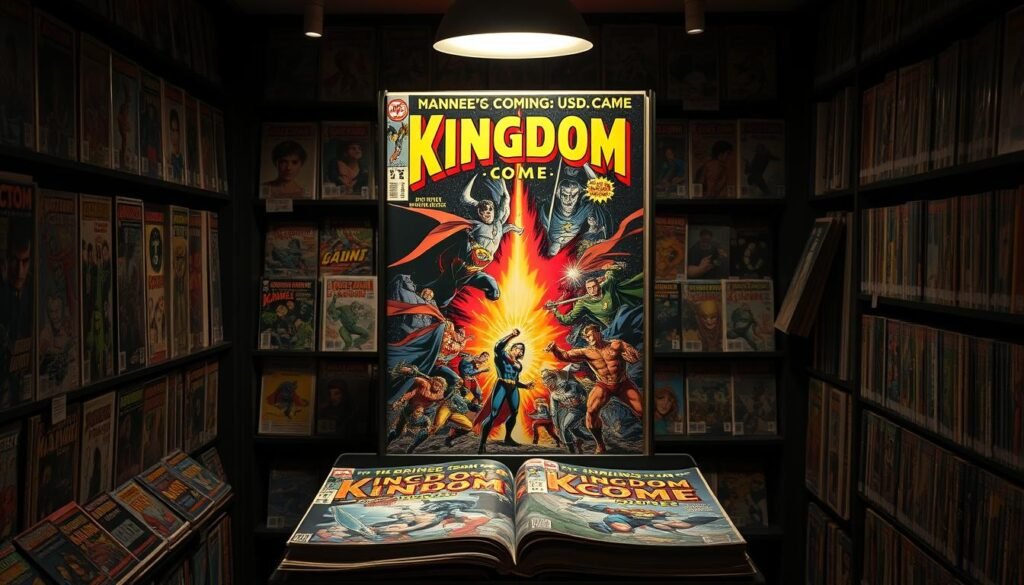
Featured Magazines and Key Issues
Kingdom Come was first serialized in four prestige-format books. These issues stood out for their detailed artwork and thought-provoking story. Key magazines like DC Comics played a crucial role in its distribution, bringing the anti-heroe narrative to a wider audience.
The trade paperback release in 1998 further cemented its place in comic history. Fans appreciated the additional scenes, which added depth to the conflict between classic hero ideals and modern antihero approaches.
Impact on the Comic Industry
Kingdom Come’s influence extended beyond its pages. It redefined expectations for the genre, blending moral ambiguity with traditional hero values. The action-packed narrative and stunning visuals set a new standard for comic book storytelling.
This work also sparked conversations about the role of heroes in a changing world. Its critique of reckless heroism resonated with readers, making it a pivotal example of how comics can reflect societal struggles.
| Aspect | Impact |
|---|---|
| Artwork | Set new standards for visual storytelling |
| Narrative | Challenged traditional hero tropes |
| Cultural Reflection | Mirrored real-world conflicts and doubts |
In my view, Kingdom Come remains a cornerstone of comic book history. Its exploration of the anti anti-hero concept continues to inspire writing and storytelling. For more insights into its dark origins, check out this detailed analysis.
Iconic Characters and Their Journeys
Exploring the lives of Kingdom Come’s characters reveals the depth of moral complexity. Each figure, from Superman to Magog, embodies a unique journey that challenges the idea of a traditional hero.
Their flaws and struggles make them relatable, offering a fresh perspective on heroism.
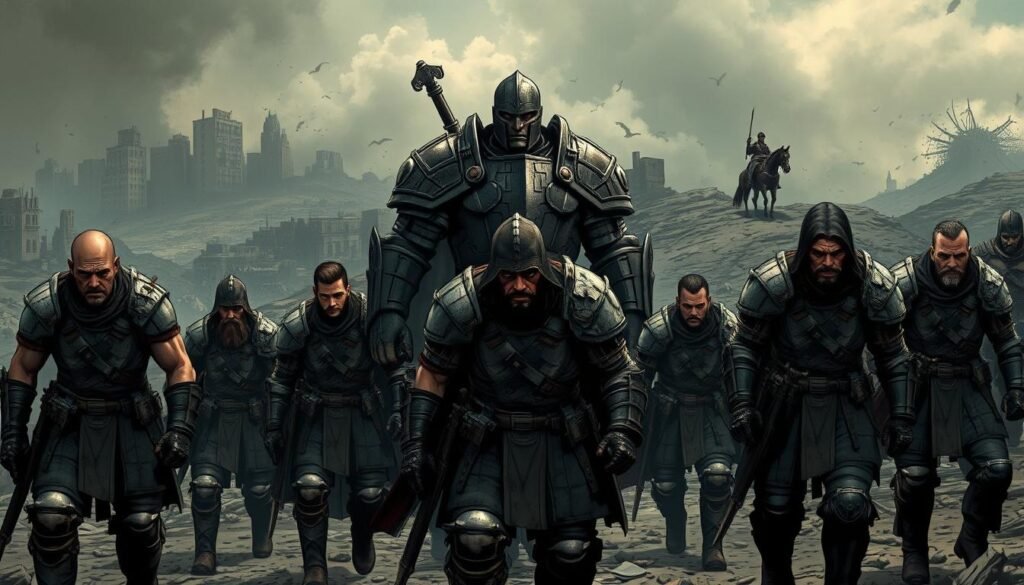
Superman: A Fallen Hero’s Redemption
Superman’s arc in Kingdom Come is a powerful example of redemption. After retreating from the world, he returns to confront chaos.
His internal conflict mirrors real-life struggles, showing that even the greatest heroes can falter. This story reminds us that growth often comes from facing our flaws.
Batman: The Reluctant Leader
Batman’s role in Kingdom Come highlights his evolution from a lone vigilante to a reluctant leader. His distrust of others and rigid moral code set him apart from traditional heroes.
Yet, his willingness to unite with former enemies shows a deeper understanding of collaboration and sacrifice.
Magog: The Anti Anti-Hero
Magog’s character blurs the lines between right and wrong. His actions, like the public execution of the Joker, spark debates about justice. This anti anti-hero challenges readers to question their own ideals, making him one of the most compelling figures in the genre.
“Kingdom Come’s characters remind us that heroism isn’t about perfection—it’s about growth.”
| Character | Journey | Key Moment |
|---|---|---|
| Superman | Redemption | Returning to save the world |
| Batman | Leadership | Uniting with former enemies |
| Magog | Moral Ambiguity | Public execution of the Joker |
In my view, these characters offer a deeper understanding of human nature. Their journeys reflect the complexities of life, showing that even flawed individuals can find redemption. Kingdom Come’s narrative invites readers to question what it truly means to be a hero.
Writing, Storyline, and Critiques: An In-depth Look
Exploring the narrative of Kingdom Come offers a fresh perspective on heroism. Written in the mid-90s, this story reflects an era of shifting values in comics. The writing style blends traditional heroism with modern flaws, creating a character-driven tale that resonates even today.
The Writing Process and Era
Mark Waid’s approach to Kingdom Come was deeply influenced by the 1990s comic landscape. This was a time when gritty, edgy heroes dominated the genre.
Waid pushed back, crafting a story that balanced moral ambiguity with classic heroism. His use of dialogue and action set a new standard for comic book writing.
Strengths, Weaknesses, and Critical Feedback
Kingdom Come’s strengths lie in its complex characters and thought-provoking conflict. However, some critics argue that the narrative’s pacing falters in the middle.
The flaw lies in its ambitious scope, which occasionally overshadows individual character arcs. Despite this, the story remains a powerful example of how comics can tackle societal issues.
Personal Reflections on the Narrative
For me, Kingdom Come’s greatest achievement is its exploration of redemption. The way it handles crime and the role of the antagonist feels deeply relevant today.
The ending, while divisive, offers a poignant understanding of human complexity. It’s a reminder that even flawed heroes can inspire change.
“Kingdom Come’s narrative challenges us to rethink what it means to be a hero.”
In conclusion, Kingdom Come’s writing and storyline remain a cornerstone of comic book history. Its blend of moral ambiguity and classic heroism continues to influence the genre. For more insights into the concept of anti-heroes, explore this detailed analysis.
Kingdom Come Beyond Comics: Other Media and Curiosities
Kingdom Come’s influence extends far beyond comic book pages, shaping other media and sparking curiosity.
Its heroes and characters have found new life in film, television, and even trivia discussions. This section dives into its adaptations, hidden facts, and why it continues to resonate today.
Adaptations and Other Media
Kingdom Come’s narrative has inspired various adaptations across different platforms. While a direct movie adaptation hasn’t materialized, its themes have influenced films and TV shows. For example, the moral ambiguity of its characters can be seen in modern superhero conflict stories.
Television series like Justice League Unlimited have drawn parallels to Kingdom Come’s exploration of flawed heroes. The world of comics has also seen animated adaptations that bring its complex characters to life. These adaptations highlight the timeless appeal of its narrative.
Fascinating Trivia and Hidden Facts
Behind the scenes, Kingdom Come is filled with intriguing details. Did you know that the other artists involved in its creation had to adjust their styles to match Alex Ross’s iconic paintings? This collaboration resulted in a visually stunning work that set a new standard for comics.
Another fun fact: the story’s focus on society and conflict was inspired by real-world events. Mark Waid wanted to explore how heroes would react in a world filled with moral dilemmas. This understanding of human nature is what makes Kingdom Come so compelling.
Explore More at Hero and Villain World
If you’re fascinated by Kingdom Come’s legacy, there’s more to discover. Visit Hero and Villain World for deeper insights into how heroes and characters evolve across media. Their analysis of film adaptations and comic book influences is a must-read for fans.
“Kingdom Come’s impact on storytelling reminds us that even flawed heroes can inspire change.”
| Aspect | Impact |
|---|---|
| Adaptations | Influenced modern superhero films and TV shows |
| Trivia | Reveals behind-the-scenes collaboration and inspiration |
| Legacy | Continues to shape the world of comics and beyond |
In my view, Kingdom Come’s journey from comics to other media is a testament to its enduring relevance. Its exploration of flawed yet relatable characters continues to inspire creators and audiences alike. For more curiosities and insights, don’t forget to check out Hero and Villain World.
The world needed heroes…. It got them instead.
A swordsman past his prime who has vowed to never wield a blade again. A mage who’d rather throw fists than fireballs and thinks magic is for sissies. An assassin who grows sick at the sight of blood. And a man with a pet squirrel he believes to be an ancient god from long ago.
Conclusion
Kingdom Come’s exploration of flawed heroes reshapes how we view heroism today. This journey from traditional ideals to moral ambiguity reflects real-life struggles, making characters relatable and compelling. Its impact on comics and film highlights the evolving nature of storytelling.
Personal flaws and societal conflicts drive these narratives, challenging us to rethink what it means to be a hero.
Stories like Kingdom Come remind us that growth often comes from facing imperfections. They invite us to question the role of the antagonist and the way we perceive crime and justice.
In a world filled with complex characters, Kingdom Come stands as a testament to the power of flawed yet inspiring journeys. For more insights into heroes and antiheroes, visit Hero and Villain World.
FAQ
What makes an anti-hero different from a traditional hero?
An anti-hero often lacks the typical traits of a traditional hero, like moral perfection or unwavering courage. They might have flaws, make questionable choices, or operate in morally gray areas, making them more relatable and complex.
Why are anti-heroes so popular in today’s stories?
Anti-heroes resonate with modern audiences because they reflect the complexities of real life. Their struggles, flaws, and redemption arcs mirror the challenges we face, making their journeys more compelling and human.
Can an anti-hero still be a protagonist?
Absolutely! An anti-hero can be the protagonist of a story, driving the narrative forward. Their unique perspective and actions often create conflict and depth, keeping audiences engaged.
What’s the role of an anti-hero in a crime story?
In crime stories, anti-heroes often blur the line between right and wrong. They might break the law for what they see as a greater good, adding layers of tension and moral ambiguity to the plot.
How do anti-heroes impact the genre they’re in?
Anti-heroes challenge traditional genre tropes by introducing unconventional perspectives. They often push boundaries, creating fresh, thought-provoking narratives that redefine expectations.
What’s the journey of an anti-hero like?
An anti-hero’s journey is usually filled with internal and external conflict. They might grapple with their flaws, seek redemption, or struggle to find their place in a world that doesn’t fully accept them.
Can an anti-hero have a happy ending?
It depends on the story. Some anti-heroes find redemption or peace, while others face tragic consequences. Their endings often reflect the complexity of their character and the choices they’ve made.
Why do writers create anti-heroes?
Writers use anti-heroes to explore deeper themes, challenge societal norms, and create relatable characters. They offer a way to tell stories that feel authentic and thought-provoking.
How do anti-heroes reflect society?
Anti-heroes often mirror societal struggles, like moral ambiguity, corruption, or the fight for survival. They provide a lens to examine real-world issues in a fictional context.
What’s the appeal of an anti-hero in film?
In film, anti-heroes bring depth and unpredictability. Their flawed nature and complex motivations make them fascinating to watch, often stealing the spotlight from more traditional characters.
